Idfi Septiani and Milkah Nyambura Righa participated in the Academy’s 2018 open course, Citizen Participation and Inclusive Governance. Following their two-week experience, they sat down with the Academy to reflect on what they learned and how they plan to address the opportunities and challenges back home.
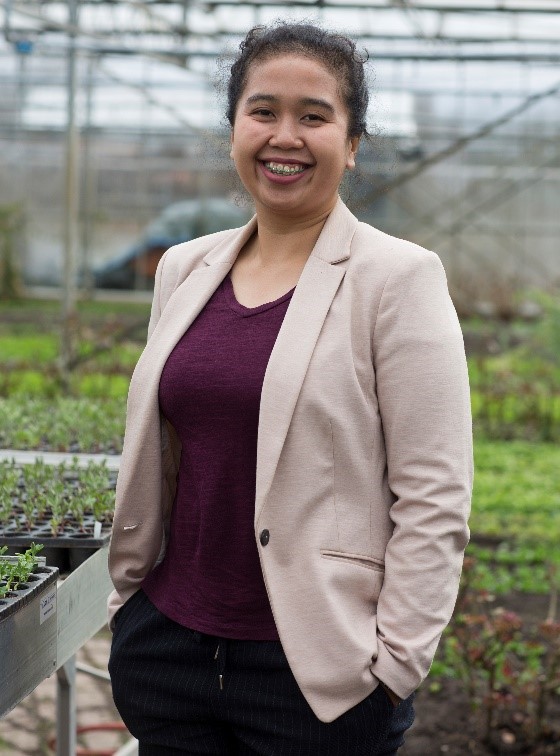 Idfi Septiani
Idfi Septiani
Year of participation: 2018
Age: 31
Occupation: Head of Sub-district Kelurahan
Local Government: City Government of Samarinda
Country: Indonesia
Course: Citizen Participation and Inclusive Governance 2018
Internship: Municipality of Amsterdam
Background
Idfi Septiani works as the head of Kelurahan administrative region and explains her position: ‘’I have to coordinate and cooperate with the district and provide public services to the community and empower the community in the social, economic and environmental domains’’. She further elaborates a crucial part of her job and her role to empower communities ‘’I have to plan, coordinate and build a good cooperation between the agency, the district and then the other stakeholders.’’
Goals
Idfi came to The Netherlands with a clear goal: to increase citizen participation in her region and to build awareness about environmental problems, neighbourhood issues, health and education. ‘’This is the reason I wanted to take the course. I wanted to know how to, how to improve the participation of citizens’’ confesses the young woman. The dire need for action is illustrated by the high levels of pollution of the Karang Mumus river. ‘’Currently, there are a lot of community residences along the river banks with sanitation facilities that directly flow into the river. Most people still use plastic bags to wrap and carry their goods and there’s still lack of knowledge in sorting waste’’.
Eye opener
‘’Well, for me everything was really useful and helpful to gain a broad insight and clarity of the concept of citizen participation and inclusive governance. But the highlight for me was the last lesson where we discussed the conditions for successful participation with the group. I also remember the participation ladder and the stakeholder analysis matrix as well.’’ After two weeks of attending the course, Idfi says she feels different and explains how a semester about inclusive governance didn’t do much for her in the past and she thought it was hard to understand the real concept of inclusive governance. “But in only two weeks, I can understand the concept of inclusive governance clearly because of this course. I feel different because of the way The Hague Academy communicates and shares the information. It’s so simple. It’s not a theory. We [practitioners] don’t always care about whose theory is used. We want real things, what is the problem in the real world?.” she continues.
“We come here and most of us are professionals and already know the practicalities, so it’s beneficial for us to share this with each other. We can share experiences from other countries, about their problems. And maybe even adopt and learn from best practices. Maybe it can work in our own communities’’.
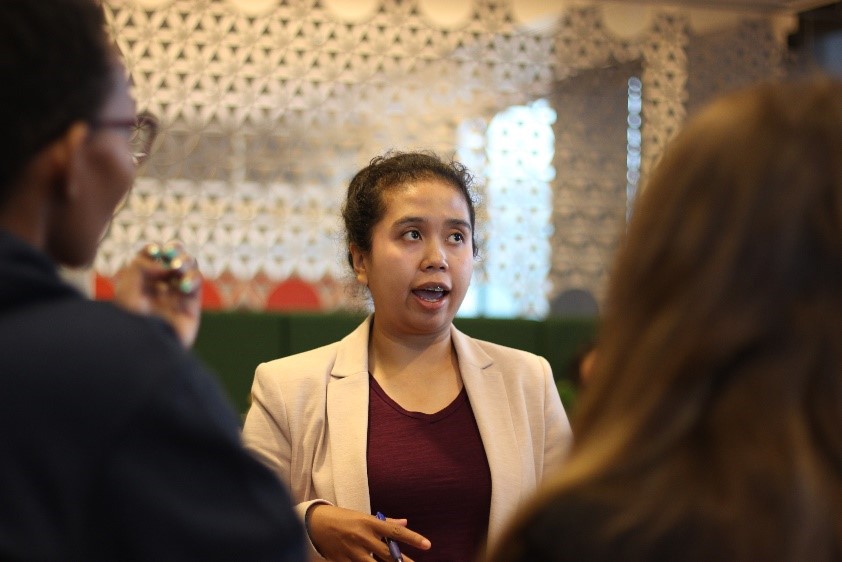
“I thought it was going to be like a university setting. Lessons which we had to follow and professors will come and we’ll be sitting and listening. But it’s different here. All the facilitators have a good method to share the information. We come here and most of us are professionals and already know the practicalities, so it’s beneficial for us to share this with each other. We can share experiences from other countries, about their problems. And maybe even adopt and learn from best practices. Maybe it can work in our own communities’’. ‘’This course has lived up to more than what I have read about the course on the website. It’s so much better than what I had expected’’ concludes Idfi.
Action Points
“The first thing that I want to do when I get back home is to debrief my supervisor because I don’t have huge authority to change the situation’’. During the course, it was mentioned that citizen participation does not develop in isolation. “We need support from each other. From other people who have bigger resources. That’s why I will also present my action plan to my city secretary and request their feedback. And then secondly, I will share the concept that I got from the course to my staff. In this way they can understand the concept as well so that we can work together in the same line’’ she convincingly argues. However, Idfi notes that it’s important to take the local context into account and aims to design a framework that can be applied to her community.
“In Indonesia we still have to empower the citizens, even to do small things such as attend public meetings. To be confident and share their opinion’’.
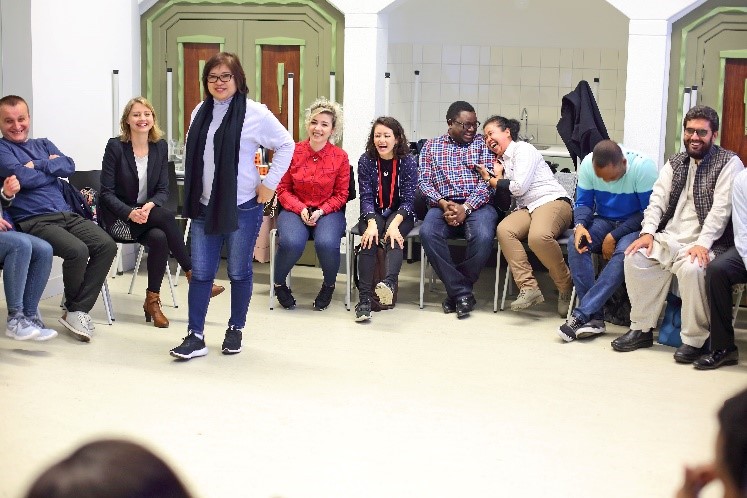 Challenges
Challenges
Even though Idfi returns home with a backpack full of new ideas and knowledge to share with her peers, she says it’s not going to be easy to change the situation in her region after reflecting on the study visit to the sustainable neighbourhood EVALanxmeer in Culemborg. “Visiting Culemborg was like coming into a dream world’’. Idfi shares her thoughts about EVALanxmeer and says it’s an incredible village where citizens are aware of the environment, their family conditions and their kids’ future. “Why I said it seems like a dream is because the people and the government work together so well and they plan together what they want. They collaborate with each other. It’s really an incredible village where they applied the issues of clean energy and such concepts.’’
“But for me, I ask myself how many years would it take before this concept can be applied in Indonesia? In Indonesia we still have to empower the citizens, even to do small things such as attend public meetings. To be confident and share their opinion,’’ she continues. Nevertheless, Idfi remains positive and is ready to share her knowledge and further deepen her expertise. “This course helped me to find out what I want to do in the future. I want to go back to school again. I’m really interested in inclusive governance so I want to go back to school on this topic because of this course. I was truly inspired by this course.’’
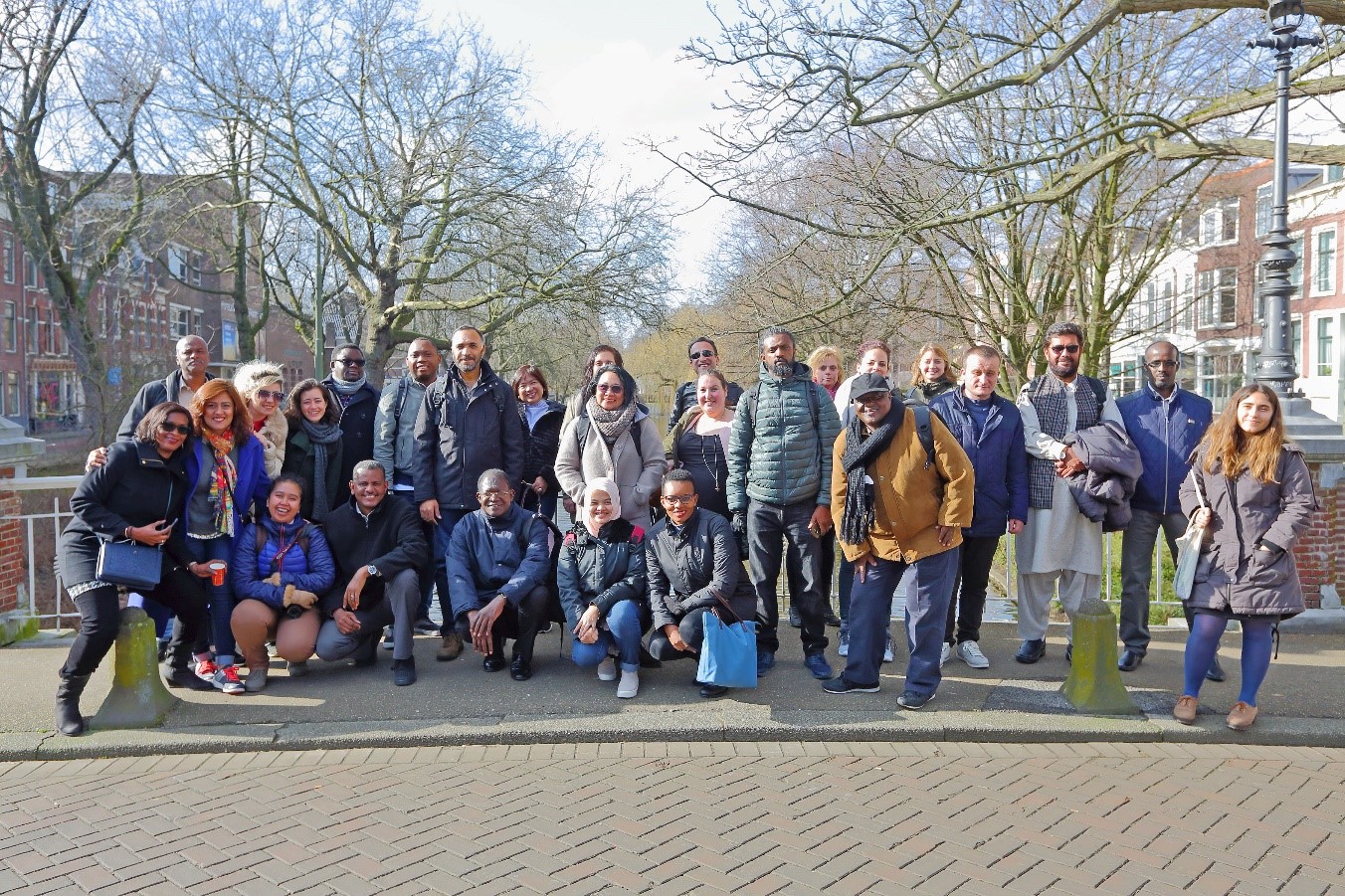
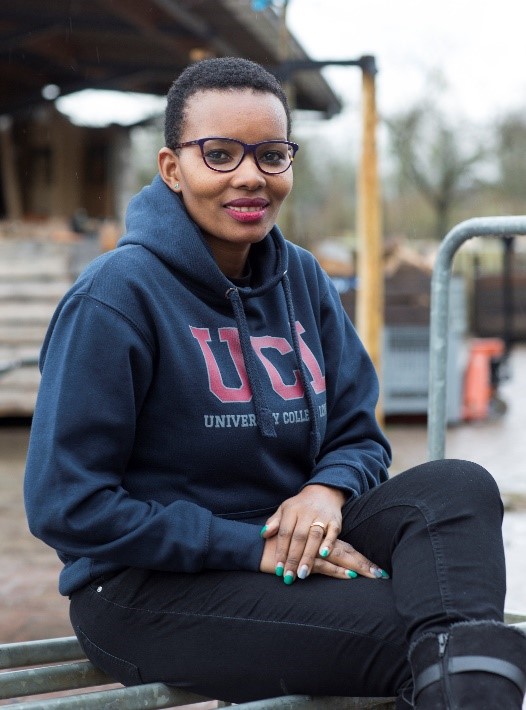 Milkah Nyambura Righa
Milkah Nyambura Righa
Year of participation: 2018
Age: 31
Occupation:
Local Government: Taita Taveta County Assembly
Country: Kenya
Course: Citizen Participation and Inclusive Governance
Internship: Municipality of Amsterdam
Background
‘’I work for the county government of Taita Taveta back in Kenya, for the county assembly. I am in charge of all County Assembly plenary and Committee reports as the editor. But in addition to that I have been coordinating public participation exercise for the last, let’s say, about 3 to 4 years since I joined in 2014’’. Milkah has been directly involved in public participation, especially focusing on the involvement of citizens in lawmaking and development programmes and further elaborates on her experiences in working on citizen participation ‘’I think it’s been a nice experience just getting to go out there to talk to the people and this is particularly true for the legislation process. Such as when we are making bills.’’.
Challenges
Being at the helm of public participation, Milkah has painstakingly witnessed ineffective methods to increase inclusive citizen participation. ‘’The people who would come for public participation would basically be the same people who kept coming all the time. And you notice that people who are key to that particular legislation are easily left out.’’, she explains. Milkah confesses that this problem is worsened by the fact that not all stakeholders are invited. ‘’So that’s why I applied for this opportunity. I really wanted to know: How do we handle this?’’
Milkah further highlights that short-term policies further complicate the situation and hedge sustainable development. “Coming from a place where policies are made, policies are not always wrong by definition but are rather not made in the best way. A lot of policies do not consider all the challenges that people face and do not look ahead for 10 or 20 years’’.
“Sometimes we make policies, but only handle a problem for let’s say the next 6 months or year. But then after that, you find that the same issues occur again. And I think it’s important that we put in structures and policies that can actually bring about sustainable development,’’ she continues.
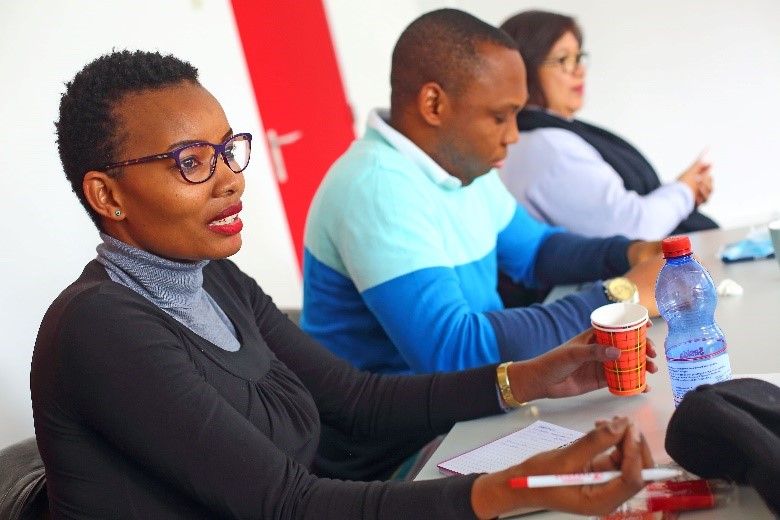
Goals
“First of all I want to just try to make people’s lives better. I think having been often in the community and living in the rural area has really opened up my eyes to the immense challenges that people face out there’’ she says.
Because of Milkah’s experience with inefficient and short-term policies, she aims to get into policymaking. “If I’m able to be a policy maker where I can advise policy, I’m able to advise on what can be done best. We should be working towards sustainable development and put in those structures and policies that can bring this about’’.
“So I think this is a very good starting point for me, knowing especially the issue of inclusive governance and just involving the citizens in the planning and involving all stakeholders. Because I think it’s an aspect that has been missing in our policies’’ she continues. “Because the moment you get policies right and you get institutions right, then everything else falls into place’’.
“This course has been very practical, in terms of knowing what other people have actually done and seen what has been done in the Netherlands and where they come from and where they are right now”.
Eye opener
The practical nature of the course has surpassed Milkah’s expectations and turned out to be much more than she had expected. “For me, this has been a very practical course. It’s not just about the theory. At times you go to a place and train and focus on theory endlessly. But this course has been very practical, in terms of knowing what other people have actually done and seen what has been done in the Netherlands and where they come from and where they are right now’’.
Working on citizen participation in one country and then suddenly being exposed to different methods and experiences from other countries can certainly widen a horizon. Milkah explains how she came to the Netherlands without ever critically thinking about the issues and topics raised during the training, such as stakeholder involvement. She notes how happy she was in the past when 100 people would participate. However, now she asks herself: Was it even successful? Did they participate effectively and in the best way? Did we involve the right people?
“What I’ve learned from the practical lessons will surely be used and in the coming weeks and months, we will be planning public participation for different legislation. This course has given me so much information. We’re going to do things a little different to try and make public participation more inclusive and consider all these factors that we have missed in the past’’.
Especially the last session where the group discussed the conditions for successful citizen participation has opened her eyes to better ways to effectively involve citizens.
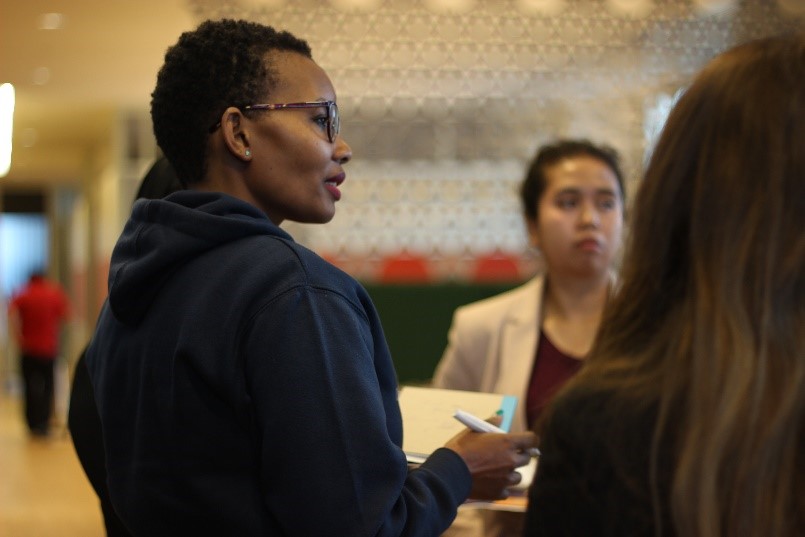
Action points
In addition to changing the status quo, Milkah underpins the importance of partnerships. ‘’I’m not going to work in isolation. I have people that I have to work with, including my supervisor who is my clerk and who has been very supportive by the way. So the first action that I will take when I get back home is to share what I have just learned. And according to my back home action plan, I want to take it further by sharing the knowledge with others because it doesn’t make sense for me to just sit with the knowledge’’. Therefore Milkah is planning to organise workshops and train government officials, starting from the executive side and the county assembly side.
“I would like to go out into the public and ask different people, whether it’s a farmer or some other professional: How do you think we’ve been doing? And how do you think you will be able to participate better in the future?”
Milkah shares her intention to start a research looking at the challenges of public participation. She’s aiming to demystify the concept of public participation and share the outcome with the Ministry of Devolution. “I would like to go out into the public and ask different people, whether it’s a farmer or some other professional: How do you think we’ve been doing? And how do you think you will be able to participate better in the future? So I think my study should be able to inform all that’’ she explains. This study would be able to better inform policies in the future as well. The resources that Milkah has acquired at The Hague Academy will be of great help for this project. However, she notes that all that she has learned and discussed during the course needs to be adjusted to fit the Kenyan context.
At the end of this training, Milkah confesses how much she has grown the past two weeks. ‘’I feel like I’m so charged. I have this push to actually go and reach out for it. The information that I had then – two weeks ago – and what I have now is totally different. I feel like an expert right now! So I think it has made such a big difference. And it’s something to be grateful for.’’
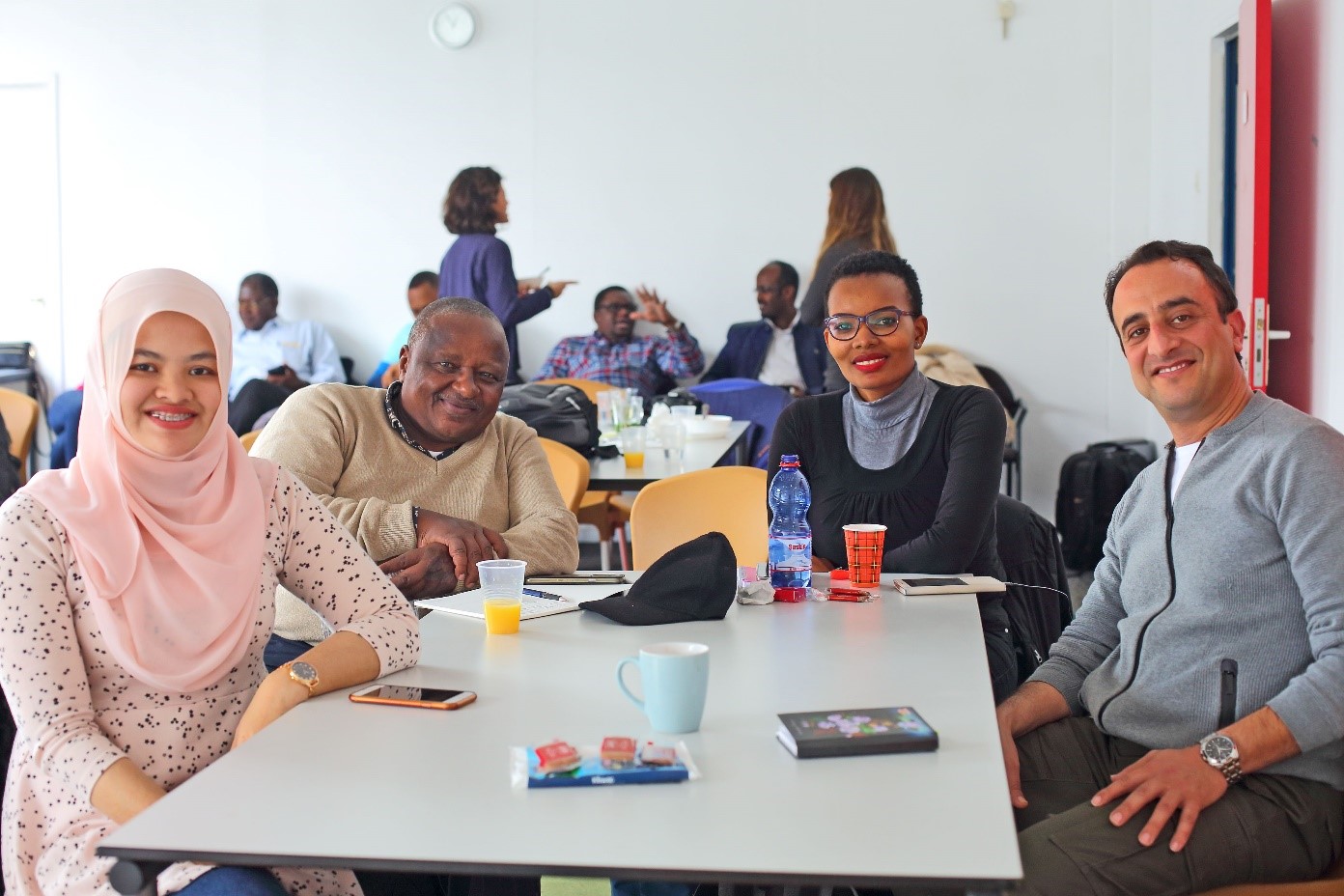
Related courses
We offer a diversity of courses throughout the year. Here are several other courses you might like.

